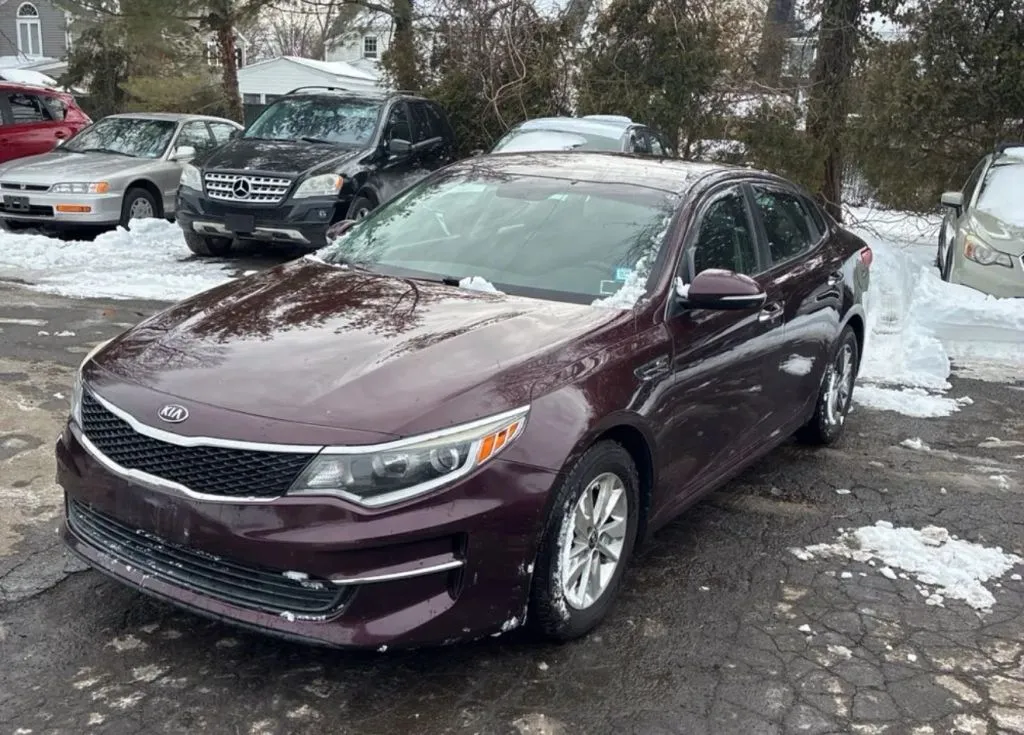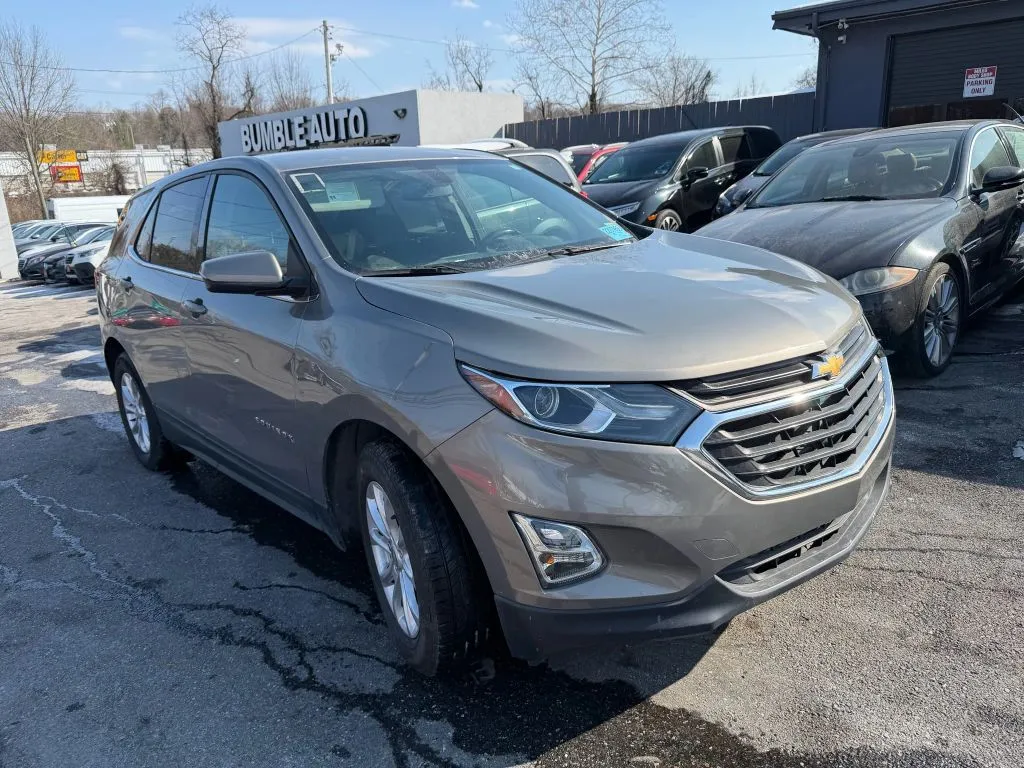Why Used Electric Cars Are a Growing Trend? A Smart Buy in 2025
Table of Contents
- The Rise of Electric Vehicles: A Brief Overview
- Why Sustainability Matters in Today’s World
- The Economic Benefits of Buying Used Electric Cars
- 1. Significant Savings on Purchase Price
- 2. Lower Maintenance and Operating Costs
- 3. Access to Government Incentives and Perks
- Environmental Impact: How Used Electric Cars Contribute to a Greener Planet
- The Top Used Electric Cars to Consider in 2025
- Tesla Model 3
- Nissan Leaf
- Chevrolet Bolt EV
- Common Misconceptions About Used Electric Cars
- The Future of Electric Vehicles: Trends and Innovations
- Conclusion: Driving Towards a Sustainable Future

As we zoom into 2025, the automotive landscape is undergoing a thrilling transformation, with used electric cars taking center stage. Once a niche market, these eco-friendly vehicles have rapidly become the hottest trend, appealing to environmentally-conscious consumers and savvy buyers alike. With mounting concerns over climate change and skyrocketing fuel prices, the appeal of pre-owned electric cars is stronger than ever. They offer not only significant savings but also a sustainable lifestyle choice that resonates with many. As major manufacturers ramp up electric vehicle production, the availability of quality used models is expanding, making it easier than ever to join the green revolution. From reducing carbon footprints to lowering monthly expenses, this trend is driving a new wave of automotive enthusiasm. Buckle up as we explore why used electric cars are revving up sustainability and reshaping our roads for a greener future!
The Rise of Electric Vehicles: A Brief Overview

Electric vehicles (EVs) have come a long way since their inception. While the concept of electric cars dates back to the 19th century, it wasn't until the early 21st century that they began to gain serious traction. Early models like the General Motors EV1, introduced in the 1990s, sparked initial interest but were eventually shelved due to technological and market limitations. Fast forward to the 2010s, and the landscape began to change dramatically with the introduction of Tesla's Roadster and Model S, which showcased the potential of electric mobility by combining performance with zero emissions.
Government mandates and environmental regulations have played significant roles in accelerating the adoption of electric vehicles. Countries around the world have set ambitious targets for reducing carbon emissions, with many aiming to phase out internal combustion engine (ICE) vehicles entirely within the next few decades. Incentives such as tax credits, rebates, and grants have made electric cars more accessible to the average consumer, further bolstering their popularity. As charging infrastructure improves and battery technology advances, the range anxiety that once deterred potential buyers is becoming a thing of the past. The rise of Tesla cars in Maryland has played a major role in EV popularity, with local interest soaring in both new and used models.
In addition to regulatory support, the automotive industry's commitment to electrification has been pivotal. Major car manufacturers like General Motors, Ford, Volkswagen, and Nissan have heavily invested in EV technology, launching numerous models to cater to a wide range of preferences and budgets. This influx of new vehicles has not only expanded the market but also led to a burgeoning supply of used electric cars. As more people trade up to the latest models, the availability of pre-owned EVs has grown, offering consumers more affordable entry points into sustainable transportation.
Why Sustainability Matters in Today’s World

Sustainability is no longer just a buzzword; it's an urgent imperative. The consequences of climate change are becoming increasingly apparent, with extreme weather events, rising sea levels, and shifting ecosystems posing significant threats to life as we know it. The transportation sector is one of the largest contributors to greenhouse gas emissions, primarily due to the reliance on fossil fuels. Choosing between hybrid or electric cars is a key decision in the shift to sustainable driving. Transitioning to electric vehicles is a critical step in mitigating these emissions and reducing our overall carbon footprint.
Sustainability also encompasses economic and social dimensions. Sustainable practices can lead to cost savings, as seen in the long-term financial benefits of electric vehicles. Lower operating and maintenance costs, reduced fuel expenses, and government incentives make EVs an economically viable option for many consumers. Furthermore, the shift towards sustainable transportation creates new job opportunities in sectors like renewable energy, battery manufacturing, and EV infrastructure development, contributing to economic growth and stability.
From a social perspective, sustainable transportation can improve public health by reducing air pollution, which is linked to respiratory and cardiovascular diseases. Cleaner air means healthier communities and lower healthcare costs. Moreover, promoting sustainability fosters a sense of responsibility and collective action, encouraging individuals and businesses to make conscious choices that benefit the planet and future generations. As awareness grows, the demand for sustainable solutions, including used electric cars, continues to rise.
The Economic Benefits of Buying Used Electric Cars

As electric vehicles (EVs) become more mainstream, many consumers are discovering the financial advantages of choosing a used EV over a new one. From lower upfront costs to ongoing savings, purchasing a pre-owned electric car can be a smart move for budget-conscious drivers who still want to embrace sustainable transportation. Below are the key economic benefits of buying used electric cars.
1. Significant Savings on Purchase Price
One of the main advantages of buying a used electric car is the reduced purchase cost compared to a new model. Like all vehicles, EVs depreciate rapidly in their early years—but this trend is even more pronounced due to fast-paced technological advancements and the constant release of updated models. There are several reasons why EVs are more cost-effective over time, especially for used car buyers. As a result, buyers can find high-quality used electric cars at a fraction of their original sticker price, making it easier to access newer technology without breaking the bank.
2. Lower Maintenance and Operating Costs
Electric vehicles typically have fewer moving parts than internal combustion engine (ICE) vehicles, which means fewer things can go wrong. Used EVs don't require oil changes, fuel filters, or spark plugs, significantly reducing maintenance expenses. The most critical components—such as the battery and electric motor—are engineered for durability and often come with extended warranties. Additionally, charging an EV is much cheaper than fueling with gasoline, especially with the growing number of free or discounted public charging stations, which further lowers the total cost of ownership.
3. Access to Government Incentives and Perks
In some regions, government incentives are not limited to new EV buyers. Used electric car purchasers may also qualify for financial benefits such as tax credits, reduced vehicle registration fees, and toll exemptions. These perks can enhance the overall value of a used EV and make it an even more affordable choice for eco-conscious drivers. When combined with the already lower purchase price and reduced maintenance costs, these incentives make used EVs a financially savvy option.
Environmental Impact: How Used Electric Cars Contribute to a Greener Planet

The environmental benefits of electric vehicles are well-documented, and used electric cars are no exception. By choosing a pre-owned EV, consumers contribute to reducing the demand for new vehicle production, which is resource-intensive and generates significant emissions. The production of new cars, including electric ones, involves mining for raw materials, energy consumption, and manufacturing processes that contribute to environmental degradation. By extending the life of existing vehicles, we can lower the overall environmental impact associated with car manufacturing.
Used electric cars also help reduce the amount of electronic waste, which is an increasing concern in our digital age. The environmental benefits of EVs are substantial—even when the vehicle is pre-owned. Proper disposal and recycling of EV batteries are crucial to minimizing their environmental footprint. Advances in battery recycling technology are making it possible to recover valuable materials and repurpose them for new batteries or other applications. By purchasing a used electric vehicle, consumers can support the development of a circular economy where materials are reused and recycled, reducing the strain on natural resources.
Driving an electric car, whether new or used, significantly lowers greenhouse gas emissions compared to traditional gasoline or diesel vehicles. Electric cars produce zero tailpipe emissions, which helps improve air quality and reduce the health risks associated with air pollution. Even when accounting for the emissions from electricity generation, EVs are still more environmentally friendly than ICE vehicles, particularly as the electricity grid becomes greener with the increased use of renewable energy sources. By choosing a used electric car, individuals can play a part in reducing global emissions and promoting a cleaner, healthier planet.
The Top Used Electric Cars to Consider in 2025
With the growing popularity of electric vehicles, the used EV market in 2025 offers more options than ever before. Whether you're looking for cutting-edge features, strong range, or great value, several models stand out as top choices for pre-owned electric cars. Don’t miss our guide to the best used EVs to know before you buy in 2025. Here are three of the most reliable and high-performing used EVs to consider this year.
Tesla Model 3

The Tesla Model 3 remains a favorite among electric vehicle enthusiasts—and for good reason. Explore used Tesla cars in Bumble Auto to find great deals on premium performance and design. Known for its sleek design, fast acceleration, and advanced technology, the Model 3 delivers a premium EV experience at a more accessible price point when bought used. It also benefits from Tesla’s widespread Supercharger network and frequent over-the-air software updates, which help maintain and even enhance performance over time. For buyers seeking innovation and driving excitement, a used Model 3 is a top-tier option.
Nissan Leaf

A pioneer in the electric vehicle market, the Nissan Leaf has built a reputation for affordability and dependability. It's especially attractive to budget-conscious buyers looking for a simple, user-friendly EV. While earlier models offer a shorter driving range, newer generations have made significant improvements in battery life and efficiency. Its wide availability and low cost of ownership make the Leaf a practical entry point into the EV world.
Chevrolet Bolt EV

The Chevrolet Bolt EV is another excellent choice in the used EV market. It stands out for its impressive all-electric range, roomy interior, and well-balanced performance. The Bolt is suitable for both city commuting and longer trips, making it a versatile option for a wide range of drivers. With competitive pricing and strong consumer reviews, the Bolt EV is a smart buy for those looking for a reliable, high-value electric vehicle.
Common Misconceptions About Used Electric Cars

Despite the growing popularity of electric vehicles, several misconceptions about used electric cars persist. One common myth is that electric vehicle batteries do not last long and require frequent replacements. While it's true that batteries degrade over time, modern EV batteries are designed to last for many years and often come with warranties that cover significant portions of their lifespan. In fact, many electric cars on the road today still retain a substantial amount of their original battery capacity.
Another misconception is that the cost of maintaining an electric vehicle is prohibitively high. On the contrary, electric cars generally have lower maintenance costs compared to traditional gasoline vehicles. With fewer moving parts and no need for oil changes, spark plugs, or exhaust systems, EVs require less frequent servicing. The most significant maintenance concern is the battery, which, as mentioned earlier, is built to last and often covered by warranties.
Some potential buyers worry about the availability of charging infrastructure, fearing that they will be stranded without a place to recharge their vehicle. However, the charging network has expanded rapidly in recent years, with more public charging stations being installed in urban and rural areas alike. Additionally, advancements in home charging solutions have made it easier for EV owners to charge their vehicles conveniently overnight. With proper planning, the fear of running out of charge is largely unfounded.
The Future of Electric Vehicles: Trends and Innovations

The future of electric vehicles is bright, with numerous trends and innovations poised to shape the industry in the coming years. One of the most exciting developments is the advancement in battery technology. Researchers and manufacturers are working on next-generation batteries that promise higher energy density, faster charging times, and longer lifespans. Among the new features in Tesla vehicles are cutting-edge battery systems and smart tech integrations that lead the EV market. Solid-state batteries, for example, are expected to revolutionize the EV market by offering significant improvements over current lithium-ion batteries.
Another emerging trend is the integration of renewable energy sources with electric vehicle charging infrastructure. Solar-powered charging stations and vehicle-to-grid (V2G) technology are becoming more prevalent, allowing EVs to not only draw power from the grid but also supply excess energy back to it. This creates a more sustainable and resilient energy ecosystem, reducing reliance on fossil fuels and enhancing the overall efficiency of the power grid.
Autonomous driving technology is also set to transform the electric vehicle landscape. Many automakers are investing heavily in self-driving systems, with the goal of creating fully autonomous vehicles in the near future. Electric cars are particularly well-suited for autonomous driving due to their advanced sensors, connectivity, and controllable drive systems. The combination of electric power and autonomous technology promises to enhance the safety, convenience, and efficiency of transportation.
Conclusion: Driving Towards a Sustainable Future
As we navigate the road to 2025, the rise of used electric cars represents a significant milestone in our journey towards a sustainable future. These vehicles offer a compelling combination of economic, environmental, and practical benefits that appeal to a broad spectrum of consumers. By opting for a pre-owned electric vehicle, individuals can contribute to reducing carbon emissions, lowering their expenses, and supporting the development of a circular economy.
The growing availability of quality used electric cars, coupled with advancements in technology and charging infrastructure, makes it easier than ever to make the switch to green transportation. As misconceptions are dispelled and more people experience the advantages of electric mobility, the momentum towards a cleaner, healthier planet will continue to build. With each used electric car on the road, we take another step towards a future where sustainability is the norm, not the exception.
In conclusion, the hottest trend of 2025 is more than just a passing fad—it's a transformative movement that is reshaping the automotive industry and our approach to environmental stewardship. By embracing used electric cars, we can all play a part in driving towards a sustainable future, one mile at a time. So, buckle up and join the green revolution—it's going to be an exhilarating ride!











